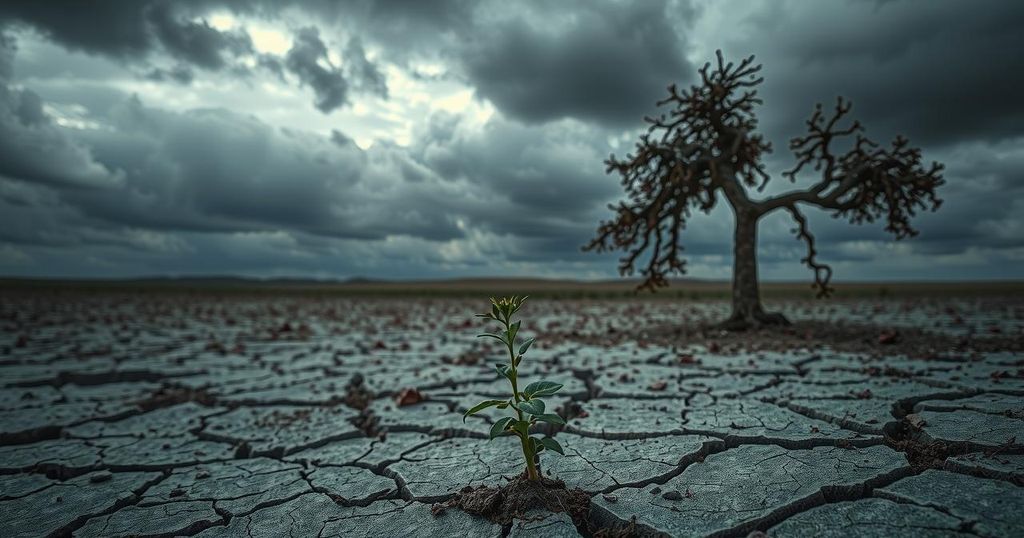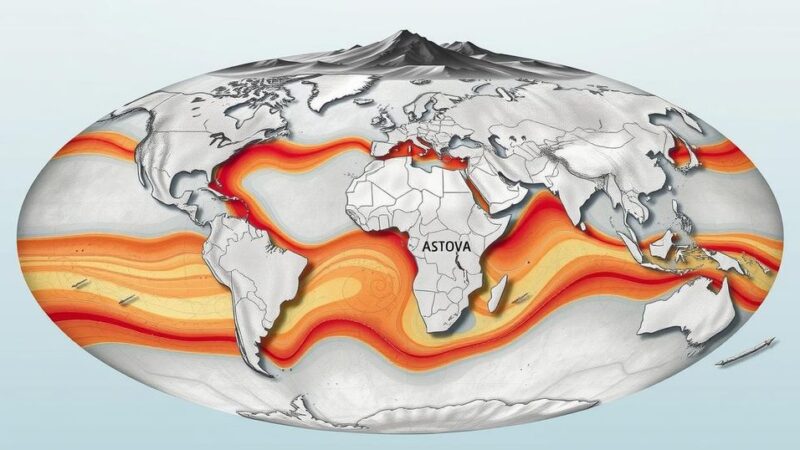A UN report reveals that 51 million children in eastern and southern Africa are threatened by extreme weather patterns, with 1 in 3 children under 5 suffering from severe food poverty. Countries like Malawi, Zambia, and Zimbabwe are facing food insecurity and health crises linked to climate change. The report calls for collaborative efforts to protect children and implement climate-smart strategies to foster resilience against climate shocks.
A recent report published by the United Nations Children’s Fund highlights that 51 million children in eastern and southern Africa are facing significant risks due to extreme weather conditions. Approximately 1 in 3 children under 5 years old on the continent, totaling around 64 million, endure severe food poverty exacerbated by conflict and climate impact. This dire situation greatly increases their vulnerability to malnutrition and life-threatening conditions.
The challenges these children face include a lack of adequate health services, safe drinking water, sanitation, and educational opportunities, compounded by significant poverty levels. The climate crisis is linked to events such as El Nino and La Nina that have resulted in health crises like cholera outbreaks and malnutrition.
Countries like Lesotho, Malawi, Namibia, Zambia, Zimbabwe, and Botswana are grappling with food insecurity due to intensified drought and water shortages. Each of these nations has declared a state of emergency in response to these challenges, as millions of people, including children, require urgent assistance. In Malawi alone, 9 million individuals are in need, with nearly 5 million being children facing severe food scarcity.
Similar circumstances are evident in Zambia, where 6.5 million people, including 3 million children, are affected by drought and flooding, leading to major food insecurity and health concerns, including cholera. Zimbabwe is also struggling with prolonged drought, which has devastated food and water sources, increasing the risk of diseases such as cholera and polio.
The report emphasizes the necessity of multi-sectoral collaboration to address this crisis and the need for immediate action to protect the futures of children in these regions. To address these issues, UNICEF is implementing climate-smart strategies designed to enhance children’s resilience to climate-related shocks, often caused by El Nino and La Nina.
Furthermore, UNICEF is committed to reducing its carbon footprint by promoting sustainable energy solutions to foster hope and protection for vulnerable children. The agency’s comprehensive approach is vital to respond to the urgent humanitarian needs of children while also tackling the root causes of climate change and its impact on their lives.
The report addresses the urgent threat posed to children by the climate crisis, highlighting the alarming statistics of child food poverty in Africa. It examines the role of extreme weather patterns, such as drought and flooding, exacerbated by climate change and its implications for health, nutrition, and overall well-being. Furthermore, it underscores the interconnectedness of socio-economic challenges, such as conflict, poverty, and lack of resources, which collectively hinder children’s development and survival in the affected regions.
In summary, the report signals a critical situation for millions of children in eastern and southern Africa, who are ensnared by the dual challenges of extreme weather and pervasive poverty. Addressing these issues requires coordinated efforts among various sectors and organizations to safeguard these children’s futures. UNICEF’s commitment to implementing climate-smart programming and reducing its emissions underlines the importance of protecting vulnerable populations from climate-induced adversities.
Original Source: global.chinadaily.com.cn






